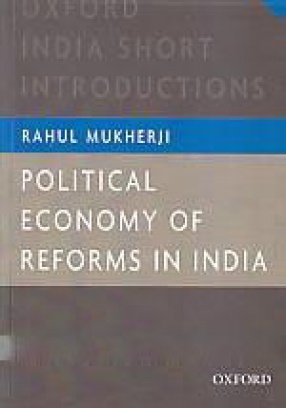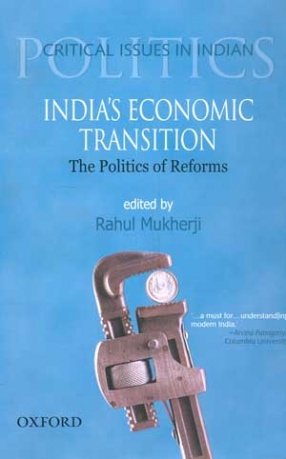
Showing all 4 books




Until the early 1990s, people in India used government-owned telephone services, travelled by the national airline, and sent letters through government post offices. The dominant ideology that markets would fail if they were not state-controlled resulted in negligible foreign investments and an uncertain future for privately owned businesses in the Indian economy.
This book, part of the Oxford International Relations in South Asia series, presents an analytical ...

This book is a collection of seminar papers about the political economy of reforms in India. There is general consensus that the first generation of reforms (concerning primarily the external sector) are over and to take the Indian economy to a higher growth trajectory, one should move on to the second generation, interpreted variously as the domestic sector or state-level reforms. This is where the political economy of resistance takes over and resistance also ...

This reader, the third in the Critical Issues in Indian politics series, discusses the politics and economics behind liberalization, and the impact of reforms on the political economy of India. In a crisp yet comprehensive introduction, the editor analyses state-market relations in India from 1947 to the late 1980s, placing the reforms in context. One of the first of its kind on the political economy of reforms, this book addresses such questions as: Why ...
